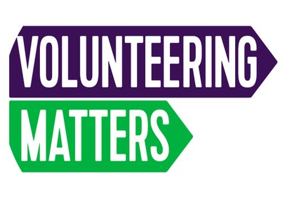The volunteer resource available during Covid-19 must be permanently embedded into the NHS and social care, says a new report.
This will help to deliver on proposed government health care reforms and achieve better outcomes for communities, it adds.
Volunteering, Covid and Integrated Care Challenges and Opportunities, is written by Jeremy Hughes, the former chief executive of the Alzheimer’s Society, for Public Policy Projects (PPP) in partnership with Royal Voluntary Service (RVS).
In the aftermath of Covid-19, the report sets out a plan aiming to ensure volunteering continues to support the government’s levelling up agenda.
'The number and diversity of volunteers was a demonstration of the power of community spirit'
The report reads: “Even before the Covid-19 pandemic, there was increasing awareness of the role volunteers could play to support patients. In part, this was due to a general reassertion of the role of society in contributing to wellbeing. There has been an increased recognition that health and social care need to be more integrated to achieve lasting and affordable change in patient support. More patient centred care, tackling inequalities, and increasing social prescribing also all point to an increased role for volunteers.
“These trends were enhanced by the response to the Covid-19 pandemic. New ways of delivering NHS services became necessary. The number and diversity of volunteers who came forward was a real demonstration of the power of community spirit.”
It identifies the strides made during the pandemic in volunteering practice and the opportunities for healthcare volunteering to be a major part of delivering on the NHS Long Term Plan, including in the delivery of social prescribing ambitions.
As well as initiatives from within the health service, the report notes many local communities saw the development of community-based responses to support neighbours and friends during the first wave of the Covid-19 pandemic.
In July 2020, the New Local Government Network reported that there were over 4,000 mutual aid groups with as many as three million people participating during the first Covid-19 wave.
Report recommendations: Improve volunteer management
The report recommends that learnings from nationally coordinated, locally delivered volunteer programmes such as the NHS Volunteer Responders scheme, should be incorporated into new delivery models.
The report identifies the steps needed to harness the current volunteer effort post-pandemic.
It recommends society improve volunteer management by introducing a single recruitment and assessment process, supported by central and local government, the NHS, social care providers and Voluntary, Community and Social Enterprise organisations (VCSE).
It says this should enable a volunteer to move between volunteering opportunities across health and social care.
The report also recommends investing in volunteer support and establishing new partnerships to best support volunteers.
Hughes said: “Experience across the country over the past year has changed the perception of volunteers in the NHS. I found NHS and social care leaders recognise this change, but systems have yet to catch up.
“A new partnership that positions volunteers contributing alongside staff to best support patients is now possible. Implementing the recommendations in this report will mean we don’t dissipate the magnificent contribution of volunteers in the pandemic but rather enshrine it in the way our health service runs for years to come.”
Related articles












